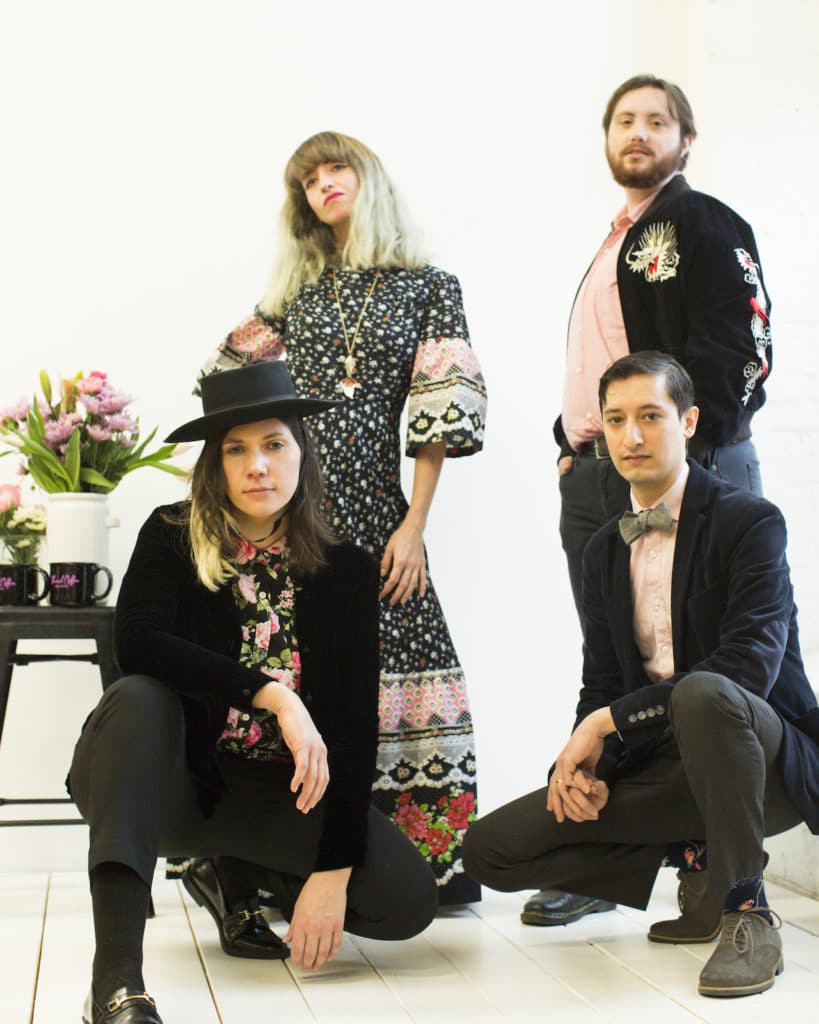No products in the cart
Michelle and Casey travel to the department of Cauca, Colombia to meet up with producer partners Fondo Paez and their new exporter, ExpoCoSurCa
 A worker cooperative getting coffee from an importing cooperative getting coffee from an exporting cooperative getting coffee from a cooperative of farmers. That’s quite a mouthful but could there be anything better? That’s the relationship we now have with Fondo Paez, who is now exporting their coffee from Cooperativa Sur Cauca’s exporting arm, ExpoCoSurCa. We begin our visit at CoSurCa’s headquarters in Popayan.
A worker cooperative getting coffee from an importing cooperative getting coffee from an exporting cooperative getting coffee from a cooperative of farmers. That’s quite a mouthful but could there be anything better? That’s the relationship we now have with Fondo Paez, who is now exporting their coffee from Cooperativa Sur Cauca’s exporting arm, ExpoCoSurCa. We begin our visit at CoSurCa’s headquarters in Popayan.
 ExpoCoSurCa formed in response to a desire from Colombian coffee farmers to have more control over how their coffee was bought and sold, and to whom. Never before in Colombia had their been an exporting facility in support of indigenous communities, instead of export facilities in support of capitalism and transnational corporations. In terms of volume ExpoCoSurCa is not a threat to business as usual. However, in terms of who is being exposed to alternatives and who they are serving, Expo feels they are a threat to the way business is done. The National Federation of Coffee growers (FNC) manages the export of much of Colombia’s coffee. When farmers hand their coffee over to the FNC for processing and exportation they don’t have the ability to find out where the coffee is going, there is no connection to the people who will drink the coffee. For Thread, ties between producers, roasters, and consumers is crucial, so we are very excited to hear that Fondo Paez are now exporting through CoSurCa.
ExpoCoSurCa formed in response to a desire from Colombian coffee farmers to have more control over how their coffee was bought and sold, and to whom. Never before in Colombia had their been an exporting facility in support of indigenous communities, instead of export facilities in support of capitalism and transnational corporations. In terms of volume ExpoCoSurCa is not a threat to business as usual. However, in terms of who is being exposed to alternatives and who they are serving, Expo feels they are a threat to the way business is done. The National Federation of Coffee growers (FNC) manages the export of much of Colombia’s coffee. When farmers hand their coffee over to the FNC for processing and exportation they don’t have the ability to find out where the coffee is going, there is no connection to the people who will drink the coffee. For Thread, ties between producers, roasters, and consumers is crucial, so we are very excited to hear that Fondo Paez are now exporting through CoSurCa.
 We had the opportunity to check out some of the processing happening at ExpoCoSurCa. While fermentation and drying usually happen on the farms of producers, most cannot afford the equipment needed to dry mill their own coffee. Surrounded by towering stacks of neatly arranged bags of Fondo Paez’s coffee we observed some steps in the dry milling of coffee. At ExpoCoSurCa the parchment is removed from the outside of green coffee beans, defective beans are sorted out, and the coffee is weighed into jute bags that are stitched closed and ready for exporting. Dry milling may sound simple, but is important to do properly, lest a year’s work for the farmer is ruined right before export.
We had the opportunity to check out some of the processing happening at ExpoCoSurCa. While fermentation and drying usually happen on the farms of producers, most cannot afford the equipment needed to dry mill their own coffee. Surrounded by towering stacks of neatly arranged bags of Fondo Paez’s coffee we observed some steps in the dry milling of coffee. At ExpoCoSurCa the parchment is removed from the outside of green coffee beans, defective beans are sorted out, and the coffee is weighed into jute bags that are stitched closed and ready for exporting. Dry milling may sound simple, but is important to do properly, lest a year’s work for the farmer is ruined right before export.
 Employees at ExpoCoSurCa hand sort coffee, removing beans with visible defects.
Employees at ExpoCoSurCa hand sort coffee, removing beans with visible defects.
In the CoSurCa labs, we cupped some samples from the farms of several Fondo Paez members, alongside those coffees’ producers! For many farmers this was their first experience at the cupping table. Soon they were slurping coffee from the spoons like pros. Among other projects, the partnership between Fondo Paez and ExpoCoSurCa will produce one of CoSurCa’s first rural quality control labs, which is already in the works. The lab will help Fondo Paez tighten up their quality control, which becomes increasingly important as the unpredictable weather caused by climate change creates new difficulties for coffee producers.
 ExpoCoSurCa’s resident cupper with TJ and Neal of Kickapoo Coffee
ExpoCoSurCa’s resident cupper with TJ and Neal of Kickapoo Coffee
Check out more photos here: http://threadcoffee.tumblr.com/






